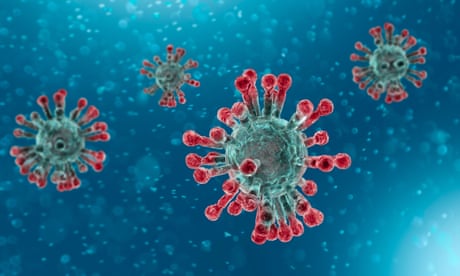 Most of us have watched the slow, slow, quick, quick rate of coronavirus spread across Africa over the last fortnight. The concerns about the potential outsize impact of a viral outbreak simultaneously hitting multiple African countries are completely justified.
Most of us have watched the slow, slow, quick, quick rate of coronavirus spread across Africa over the last fortnight. The concerns about the potential outsize impact of a viral outbreak simultaneously hitting multiple African countries are completely justified.
Even the best prepared African countries—several have had recent experience with viral outbreaks including Ebola—may still struggle because of what the World Health Organization identifies as “fragile health systems” and weak infrastructure.
As this newsletter went to press, well over a 1,000 people had been infected with the virus across nearly 40 African countries. The best we can hope for is the spread does not wreak the type of havoc as we’ve seen in some countries.
However, even if Africa somehow avoided the worst of the human toll, it’s going to be near impossible to avoid a major economic hit. Not only are African countries fully integrated into the global economy but many states are often playing a weak hand as exporters of commodities whose prices have been falling precipitously. And for those who are importing goods their currencies are losing value against the dollar in an uncertain global economy. For several countries they have both of these challenges even as international investors start to turn away from Africa to worry about the problems at home.
“The pullback from African markets as well as a projected decline in export revenues has led to depreciations of local currencies,” writes Brahima Sangafowa Coulibaly, director of Brookings Institution’s Africa Growth Initiative. “These exchange rate depreciations will push up local inflation and trigger monetary policy and financial tightening.” This means the repayments on the rising dollar debt we’ve been writing about recently will be even more difficult to cover.
The impending economic downturn has seen the UN Economic Commission for Africa estimate the continent will see growth drop to 1.8% from a previous estimate of 3.2% due to, among other things, the disruption of global supply chains and a crash in oil prices that will cost up to $65 billion in export revenues.
Brookings lowered its forecast for Sub-Saharan Africa’s GDP growth in 2020 to between 1.5% to 2.5% from a previous forecast of 3.6%. Coulibaly thinks even if African governments are quick to contain the spread of the virus and global conditions stabilize, the region’s growth will decline by one percentage point. The worst case scenario of long-lasting pandemic and slow global economic recovery will see a decline of two percentage points.
CORONAVIRUS AND AFRICA
Africa starts to lock out the world to slow coronavirus’ spread. Governments across the continent are taking unprecedented steps to slow the spread of coronavirus. With a majority of index cases on the continent being incoming foreign travelers, African nations have imposed restrictions on travelers from countries worst affected by the outbreak.
Facebook, Twitter join African governments to dispel coronavirus misinformation. Anxiety around the growing number of African coronavirus cases is proving fertile ground for misinformation. But, from WhatsApp bots and prison penalties to fact-checking tools, governments, with the aid of social media giants, are pushing back against misinformation.
South Africa is taking drastic steps to save its high-risk population from coronavirus. South Africa’s government is stepping up measures to combat coronavirus particularly for patients with existing health conditions. The stakes are much higher for the 7.7 million people living with HIV, explains Sarah Wild in Johannesburg.
Americans are turning to one of Africa’s most common prescribed drugs to battle coronavirus. Donald Trump’s premature declaration chloroquine have been approved for coronavirus treatment is driving interest in the drug in the US. For Africans however, a familiarity with the drug—and its side effects—have been fostered by decades of malaria treatment,
Africa’s largest city is trying to shut down to beat coronavirus—that’s easier said than done. Lagos, Nigeria’s economic capital, has announced social distancing policies including shutting down schools and banning large gatherings. Cultural and lifestyle nuances as well the deeply entrenched pull of religion suggest the measures will prove difficult to enforce.
Source: Quartz Africa







